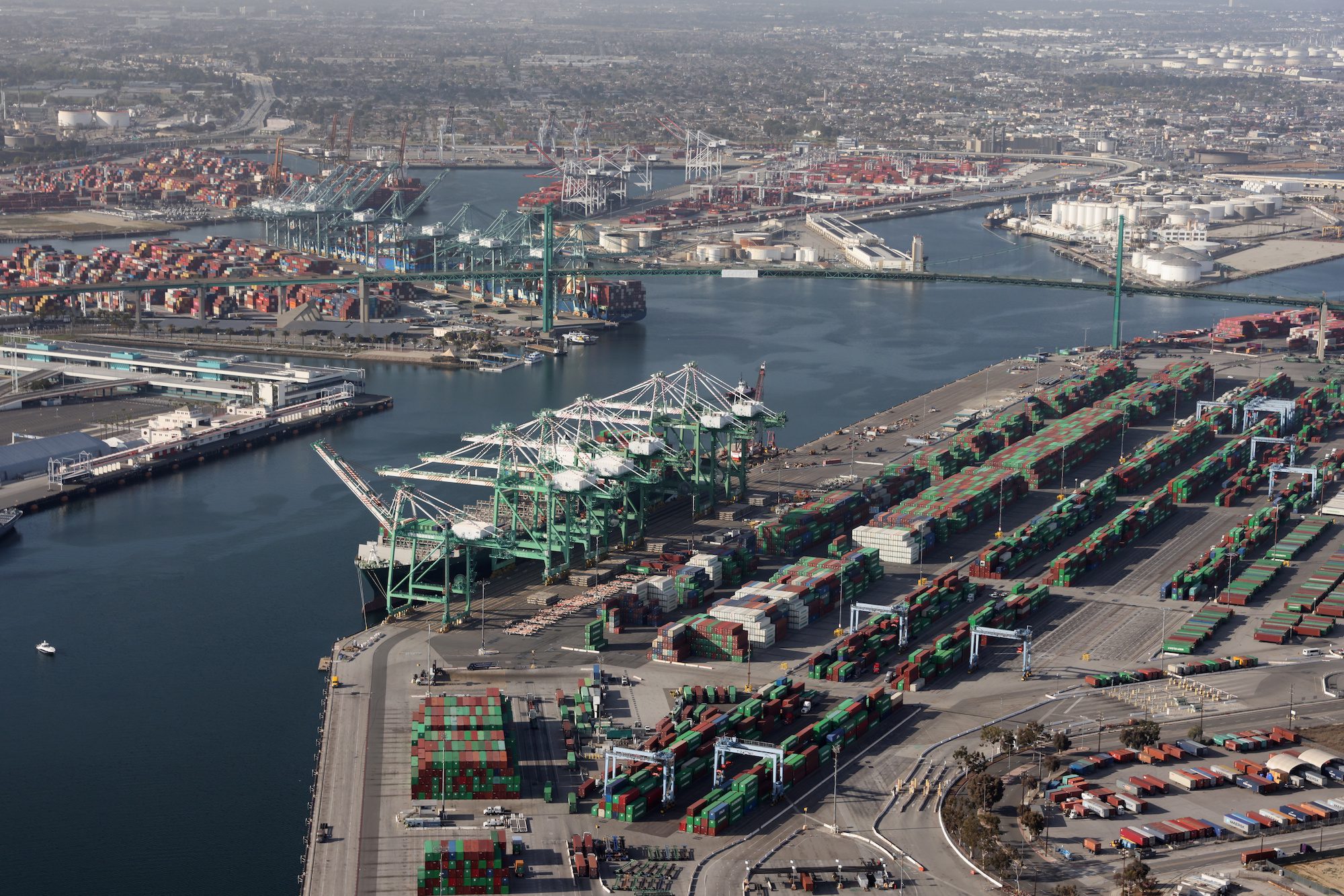The bipartisan “Ocean Shipping Reform Act” (H.R.4996) passed the U.S. House of Representatives on Wednesday by a bipartisan 364-60 vote.
The legislation has been touted as the first major update to federal regulations for the global ocean shipping industry in over two decades years.
The bill was introduced by Rep. John Garamendi (D-CA), a senior member of the House Committee on Transportation and Infrastructure, and Rep. Dusty Johnson (R-SD) to “make the Federal Maritime Commission (FMC) a more effective federal regulator.” The bill has also been endorsed by the Biden White House.
“The Ocean Shipping Reform Act (H.R.4996) will ensure a more competitive global ocean shipping industry, protect American businesses and consumers from price gouging, and establish reciprocal trade opportunities to reduce the United States’ longstanding trade imbalance with export-driven countries like mainland China,” the Congressmen said in a press release upon the bill’s passing.
The bill seeks to overhaul regulatory oversight of international ocean carriers and hold them accountable for supply chain congestion, trade imbalances with China, and unreasonable fees, while also protecting the rights of American importers and exporters. The World Shipping Council, representing international liner shipping company’s, called the bill “a political statement of frustration” that won’t fix supply chain congestion.
The Congressmen have shared a bullet pointed list describing what’s in the bill:
- Establish reciprocal trade to promote U.S. exports as part of the Federal Maritime Commission’s (FMC) mission.
- Require ocean carriers to adhere to minimum service standards that meet the public interest, reflecting best practices in the global shipping industry.
- Require ocean carriers or marine terminal operators to certify that any late fees —known in maritime parlance as “detention and demurrage” charges—comply with federal regulations or face penalties.
- Shift burden of proof regarding the reasonableness of “detention or demurrage” charges from the invoiced party to the ocean carrier.
- Prohibit ocean carriers from declining opportunities for U.S. exports unreasonably, as determined by the FMC in new required federal rulemaking.
- Require ocean common carriers to report to the FMC each calendar quarter on total import/export tonnage and twenty-foot equivalent units (loaded/empty) per vessel that makes port in the United States.
“Access to the American market and its consumers is a privilege, not a right,” Garamendi said. “Congress must restore balance at our ports and tackle the longstanding trade imbalance our nation has with China and other countries head on. I am pleased that the ‘Ocean Shipping Reform Act’ has passed the U.S. House of Representatives with overwhelming bipartisan support, bringing us one step closer to protecting American consumers and businesses from price gouging by foreign-flagged ocean carriers. I continue working with my Republican colleague, Congressman Dusty Johnson of South Dakota, to enact our bipartisan bill into law.”
“We’ve all been impacted by the backlog in the supply chain and shipping delays,” said Johnson. “China and the foreign flagged ocean carriers aren’t playing fair, and accountability is long overdue. If you want to do business with American ports, you need to play by our basic rules. I am proud of the coalition Congressman Garamendi and I have worked to build over the last year. The Ocean Shipping Reform Act puts American consumers, farmers, ranchers, retailers, truckers, manufacturers, and small businesses first. Our bill passed the House with strong bipartisan support and I look forward to seeing it pass the Senate.”
The Congressmen said the bill has been endorsed more than 360 national, state and local groups and businesses, including the National Retail Federation, the world’s largest retail trade federation.
“The Shipping Act has remained unchanged for nearly 20 years, as the global supply chain has continued to grow and evolve to meet increased consumer demand. This bipartisan legislation provides much-needed updates and reform to an archaic system that retailers and thousands of other businesses depend on each day to transport goods,” the NRF said in a statement. “These improvements could not come at a more critical time, as the amplification from the pandemic has been severe.”
The legislation now heads to the United States Senate for consideration.
If passed, the bill would mark the first time Congress has overhauled the Federal Maritime Commission’s authority to regulate the global ocean shipping industry since the Ocean Shipping Reform Act of 1998 (Public Law 105-258). In 2001, the People’s Republic of China was granted permanent normal trade relations with the United States, or so-called “most-favored nation” status, following the country’s admission to the World Trade Organization.
John Butler, President and CEO at the World Shipping Council, commented: “The House today passed HR 4996 without proper debate or committee process. The bill is a political statement of frustration with supply chain challenges – frustrations that ocean carriers share. The problem is that the bill is not designed to fix the end-to-end supply chain congestion that the world is experiencing, and it will not and cannot fix that congestion.”
“WSC will continue to work with the Congress to seek real solutions that further strengthen the ocean transportation system that has supported the U.S. economy throughout the pandemic,” Butler said.
Sign up for our newsletter

 Join The Club
Join The Club











